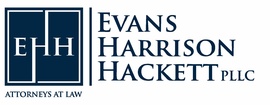EMPLOYMENT LAW ALERT
ADDRESSING ABUSIVE CONDUCT, BULLYING IN THE WORKPLACE
As we have discussed in several prior Employment Law Alerts, and as everyone is well aware, the #MeToo movement has not only increased the visibility of harassment concerns in the workplace, but also has placed additional requirements on employers to ensure that they are taking appropriate steps to prevent and address inappropriate behavior when it happens.
As we all know, while certain thresholds must be met for inappropriate behavior to be considered unlawful harassment, e.g., the inappropriate behavior must be based upon a protected class such as race or sex, the behavior must be “severe or pervasive,” etc., an effective harassment policy is not limited simply to unlawful workplace harassment. An effective harassment policy ensures that appropriate action will be taken to investigate and address concerns of inappropriate behavior in the workplace, even where it might not be considered unlawful in a court of law.
Building upon that premise, and taking into account the new landscape created by the #MeToo movement, employers are well-advised to consider specifically addressing certain categories of workplace conducted that are prohibited in the workplace, even if they do not rise to the level of “harassing.” In reality, it is somewhat rare to see harassment claims that arise out of sexual desire or intentional wish to inflict harm upon another individual. Instead, most harassment complaints are simply the product of immaturity, stupidity, or the failure to think before opening one’s mouth.
With that in mind, and in order to fully address concerns of inappropriate behavior in the workplace, employers are advised to consider adding language to their harassment policy (and to harassment training) addressing topics such as the following:
- Bullying
- Joking
- Abusive behavior
For the most part, this is more or less a recommended “best practice” for employers at this point. Moving forward, however, it is entirely likely that more and more jurisdictions will make it an obligation for employers to investigate and address issues involving such behavior, even if it is not based upon membership in a protected class (race, sex, age, disability, etc.).
In line with this trend, on April 23, 2019 Governor Bill Lee of Tennessee signed H.D. 2016 into law, which expanded the Tennessee Healthy Workplace Act to cover private employers. Recognizing that approximately one out of five employees reports having been subjected to bullying/abusive conduct in the workplace, the law places an affirmative obligation upon employers to prevent, investigate, and address concerns of abusive conduct.
Under this new law, an employer which adopts the “model policy” proposed by the state (or otherwise implements a reasonable policy addressing abusive conduct) is immune from liability where an employee suffers “infliction of mental anguish” at the hands of a coworker (or coworkers).
For private employers in the state of Tennessee, it will be necessary to implement a new “abusive conduct” policy (which may be regarded, at least to some degree, as a supplement to the employer’s existing harassment policy). Absent such a policy, an employer may open itself up to potential legal exposure where an employee contends that he/she has been harmed by the abusive behavior of a coworker, even if that behavior has absolutely nothing to do with race, sex, or any other protected characteristic.
For employers in other jurisdictions, it is nevertheless a good time to consider adding language addressing workplace bullying and similar conduct. Over time, we believe that additional jurisdictions will follow the lead of Tennessee and expand protections for employees suffering from bullying or similar behavior in the workplace.
If you have questions about this Employment Law Alert or wish to discuss the impact of this decision upon your business, please do not hesitate to contact Maury Nicely at Evans Harrison Hackett PLLC, 423/648-7851 or mnicely@ehhlaw.com.


